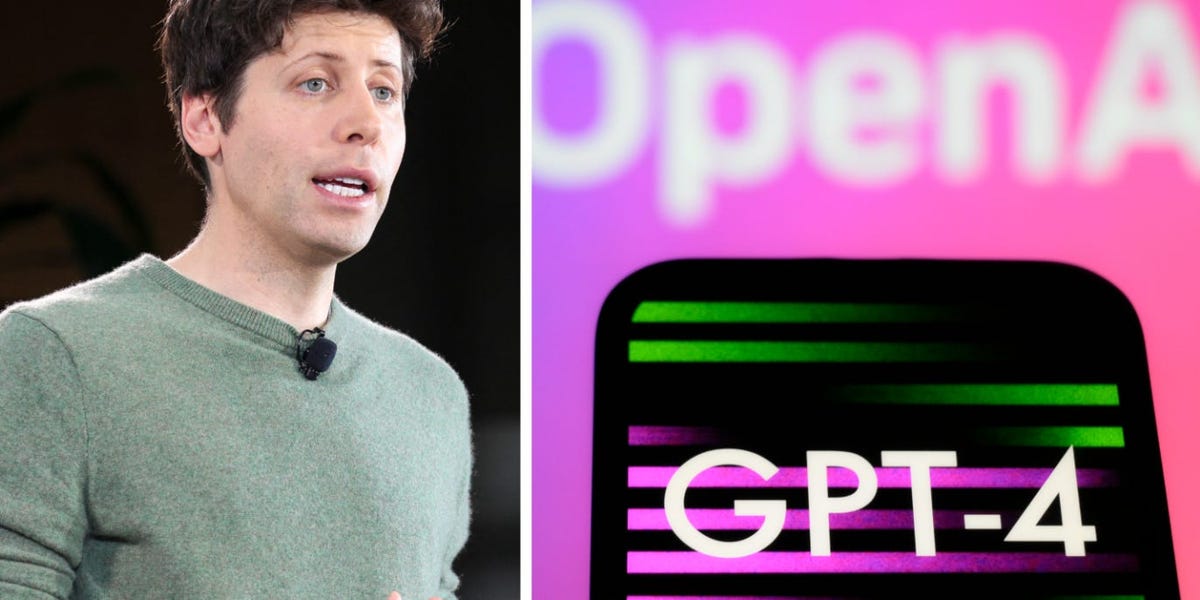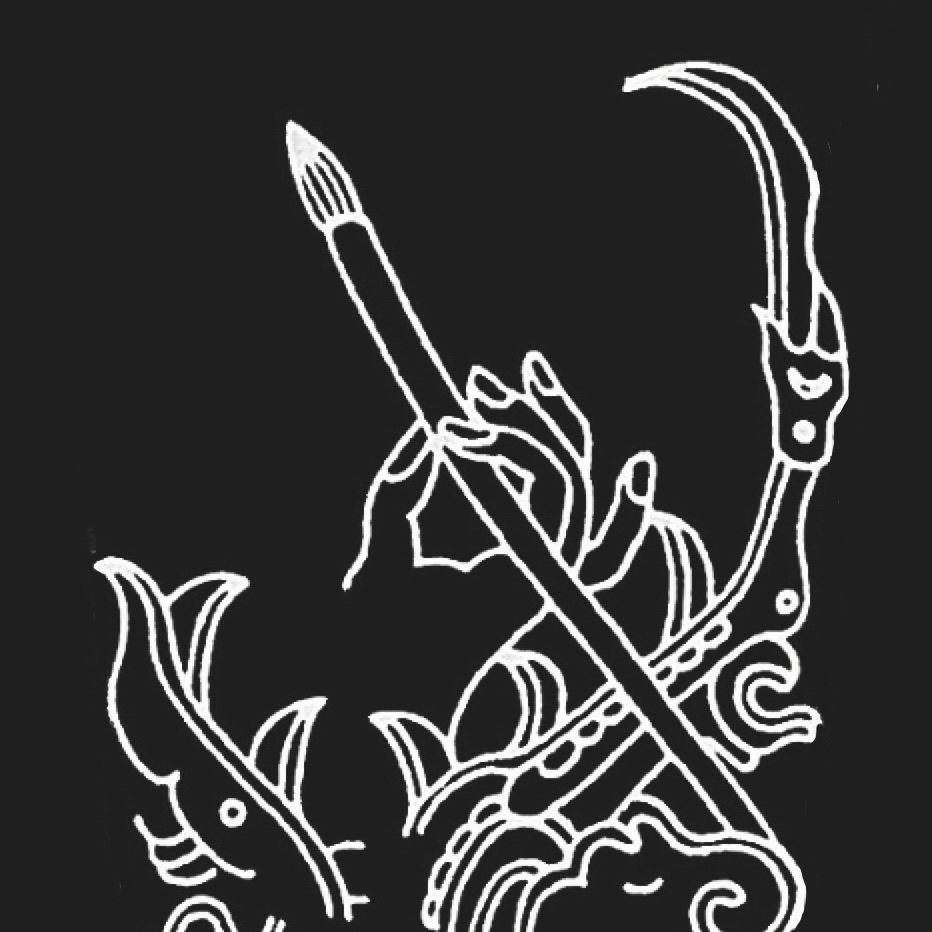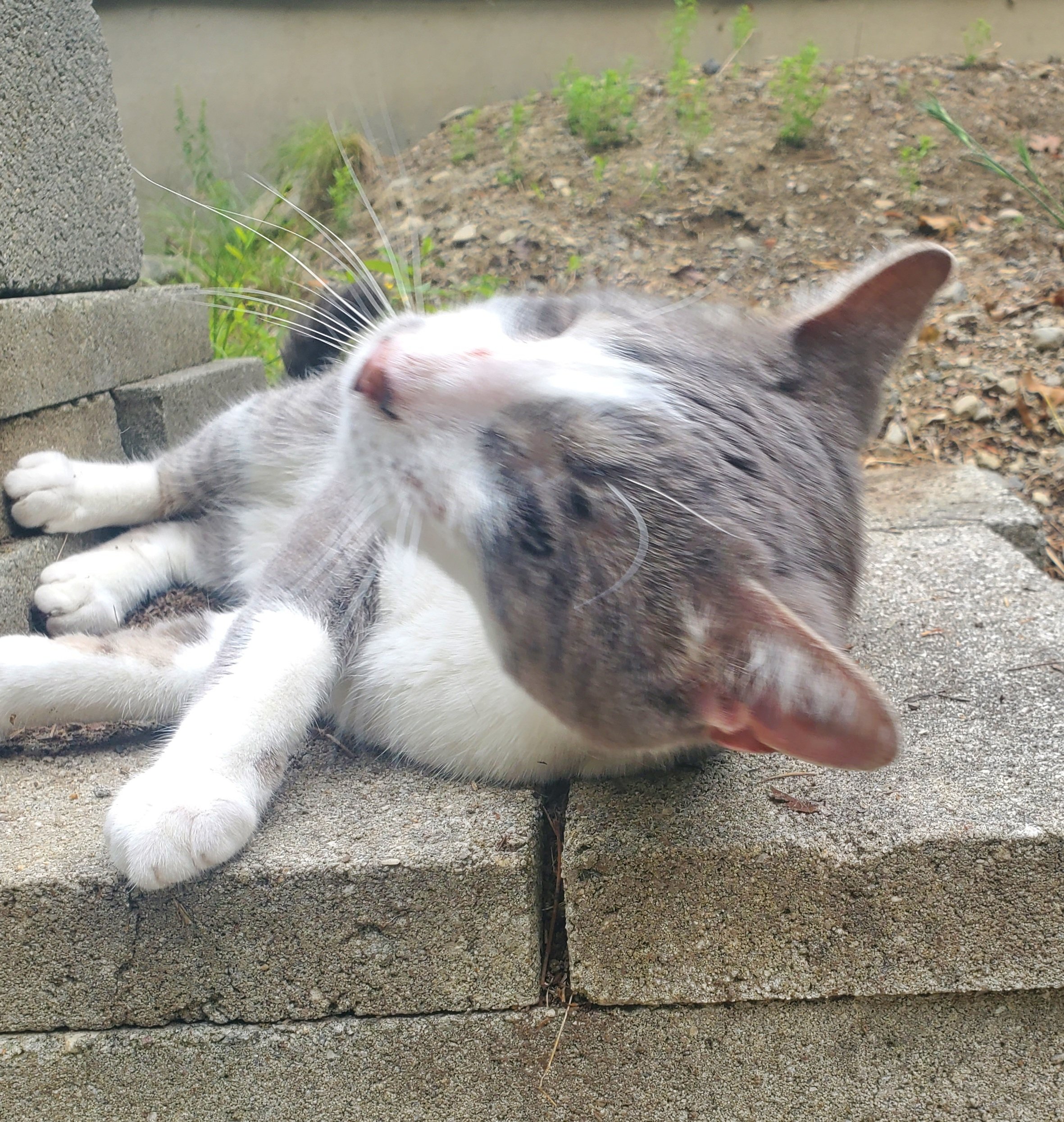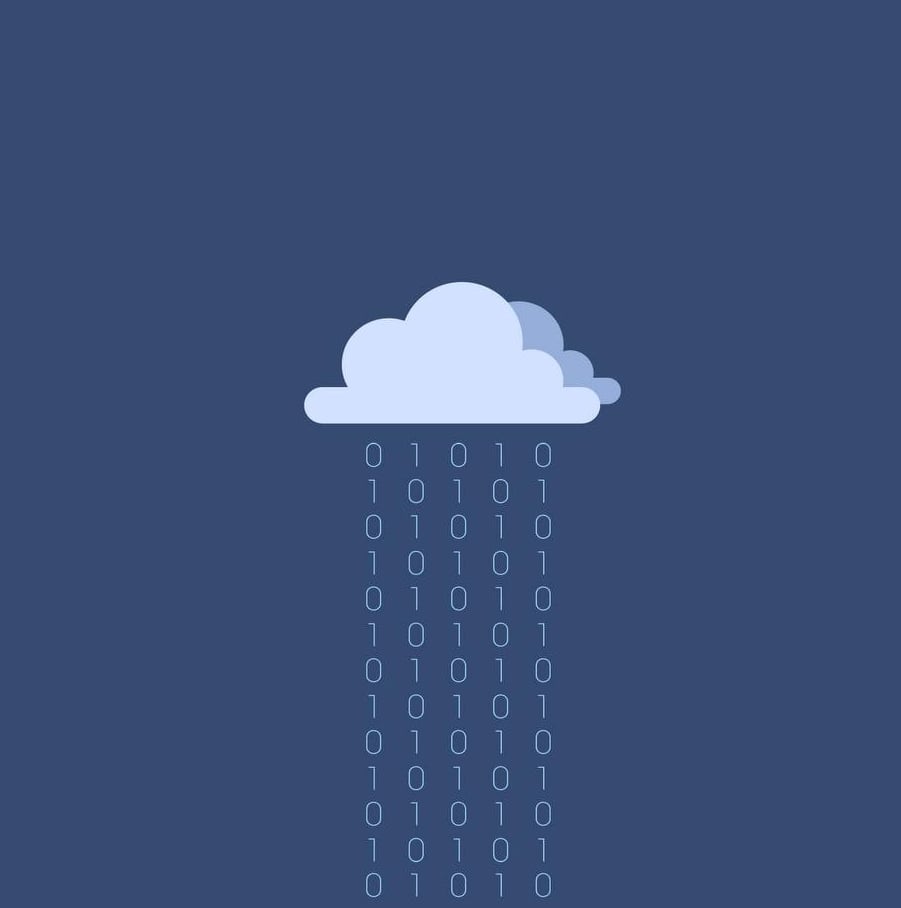Two authors sued OpenAI, accusing the company of violating copyright law. They say OpenAI used their work to train ChatGPT without their consent.
If I read a book to inform myself, put my notes in a database, and then write articles, it is called “research”. If I write a computer program to read a book to put the notes in my database, it is called “copyright infringement”. Is the problem that there just isn’t a meatware component? Or is it that the OpenAI computer isn’t going a good enough job of following the “three references” rule to avoid plagiarism?
Yeah. There are valid copyright claims because there are times that chat GPT will reproduce stuff like code line for line over 10 20 or 30 lines which is really obviously a violation of copyright.
However, just pulling in a story from context and then summarizing it? That’s not a copyright violation that’s a book report.
Or is it that the OpenAI computer isn’t going a good enough job of following the “three references” rule to avoid plagiarism?
This is exactly the problem, months ago I read that AI could have free access to all public source codes on GitHub without respecting their licenses.
So many developers have decided to abandon GitHub for other alternatives not realizing that in the end AI training can safely access their public repos on other platforms as well.
What should be done is to regulate this training, which however is not convenient for companies because the more data the AI ingests, the more its knowledge expands and “helps” the people who ask for information.
It’s incredibly convenient for companies.
Big companies like open AI can easily afford to download big data sets from companies like Reddit and deviantArt who already have the permission to freely use whatever work you upload to their website.
Individual creators do not have that ability and the act of doing this regulation will only force AI into the domain of these big companies even more than it already is.
Regulation would be a hideously bad idea that would lock these powerful tools behind the shitty web APIs that nobody has control over but the company in question.
Imagine the world is the future, magical new age technology, and Facebook owns all of it.
Do not allow that to happen.
Is it practically feasible to regulate the training? Is it even necessary? Perhaps it would be better to regulate the output instead.
It will be hard to know that any particular GET request is ultimately used to train an AI or to train a human. It’s currently easy to see if a particular output is plagiarized. https://plagiarismdetector.net/ It’s also much easier to enforce. We don’t need to care if or how any particular model plagiarized work. We can just check if plagiarized work was produced.
That could be implemented directly in the software, so it didn’t even output plagiarized material. The legal framework around it is also clear and fairly established. Instead of creating regulations around training we can use the existing regulations around the human who tries to disseminate copyrighted work.
That’s also consistent with how we enforce copyright in humans. There’s no law against looking at other people’s work and memorizing entire sections. It’s also generally legal to reproduce other people’s work (eg for backups). It only potentially becomes illegal if someone distributes it and it’s only plagiarism if they claim it as their own.
This makes perfect sense. Why aren’t they going about it this way then?
My best guess is that maybe they just see openAI being very successful and wanting a piece of that pie? Cause if someone produces something via chatGPT (let’s say for a book) and uses it, what are they chances they made any significant amount of money that you can sue for?
It’s hard to guess what the internal motivation is for these particular people.
Right now it’s hard to know who is disseminating AI-generated material. Some people are explicit when they post it but others aren’t. The AI companies are easily identified and there’s at least the perception that regulating them can solve the problem, of copyright infringement at the source. I doubt that’s true. More and more actors are able to train AI models and some of them aren’t even under US jurisdiction.
I predict that we’ll eventually have people vying to get their work used as training data. Think about what that means. If you write something and an AI is trained on it, the AI considers it “true”. Going forward when people send prompts to that model it will return a response based on what it considers “true”. Clever people can and will use that to influence public opinion. Consider how effective it’s been to manipulate public thought with existing information technologies. Now imagine large segments of the population relying on AIs as trusted advisors for their daily lives and how effective it would be to influence the training of those AIs.
Plus, any regulation to limit this now means that anyone not already in the game will never breakthrough. It’s going to be the domain of the current players for years, if not decades. So, not sure what’s better, the current wild west where everyone can make something, or it being exclusive to the already big players and them closing the door behind
My concern here is that OpenAI didn’t have to share gpt with the world. These lawsuits are going to discourage companies from doing that in the future, which means well funded companies will just keep it under wraps. Once one of them eventually figures out AGI, they’ll just use it internally until they dominate everything. Suddenly, Mark Zuckerberg is supreme leader and we all have to pledge allegiance to Facebook.
AI could have free access to all public source codes on GitHub without respecting their licenses.
IANAL, but aren’t their licenses are being respected up until they are put into a codebase? At least insomuch as Google is allowed to display code snippets in the preview when you look up a file in a GitHub repo, or you are allowed to copy a snippet to a StackOverflow discussion or ticket comment.
I do agree regulation is a very good idea, in more ways than just citation given the potential economic impacts that we seem clearly unprepared for.
The fear is that the books are in one way or another encoded into the machine learning model, and that the model can somehow retrieve excerpts of these books.
Part of the training process of the model is to learn how to plagiarize the text word for word. The training input is basically “guess the next word of this excerpt”. This is quite different compared to how humans do research.
To what extent the books are encoded in the model is difficult to know. OpenAI isn’t exactly open about their models. Can you make ChatGPT print out entire excerpts of a book?
It’s quite a legal gray zone. I think it’s good that this is tried in court, but I’m afraid the court might have too little technical competence to make a ruling.
Say I see a book that sells well. It’s in a language I don’t understand, but I use a thesaurus to replace lots of words with synonyms. I switch some sentences around, and maybe even mix pages from similar books into it. I then go and sell this book (still not knowing what the book actually says).
I would call that copyright infringement. The original book didn’t inspire me, it didn’t teach me anything, and I didn’t add any of my own knowledge into it. I didn’t produce any original work, I simply mixed a bunch of things I don’t understand.
That’s what these language models do.
What about… they are making billions from that “read” and “storage” of information copyrighted from other people. They need to at least give royalties. This is like google behavior, using people data from “free” products to make billions. I would say they also need to pay people from the free data they crawled and monetized.
I’d say the main difference is that AI companies are profiting off of the training material, which seem unethical/illegal.
AI fear is going to be the trojan horse for even harsher and stupider ‘intellectual property’ laws.
Yeah, they want the right only to protect who copies their work and distributes it to other people, but who’s able to actually read and learn from their work.
It’s asinine and we should be rolling back copy right, not making it more strict. This 70 year plus the life of the author thing is bullshit.
Copyright of code/research is one of the biggest scams in the world. It hinders development and only exists so the creator can make money, plus it locks knowledge behind a paywall
Researchers pay for publication, and then the publisher doesn’t pay for peer review, then charges the reader to read research that they basically just slapped on a website.
It’s the publisher middlemen that need to be ousted from academia, the researchers don’t get a dime.
It’s generally not the creator who gets the money.
Remember, Creative Commons licenses often require attribution if you use the work in a derivative product, and sometimes require ShareAlike. Without these things, there would be basically no protection from a large firm copying a work and calling it their own.
Rolling pack copyright protection in these areas will enable large companies with traditional copyright systems to wholesale take over open source projects, to the detriment of everyone. Closed source software isn’t going to be available to AI scrapers, so this only really affects open source projects and open data, exactly the sort of people who should have more protection.
There’s also GPL, which states that derivations of GPL code can only be used in GPL software. GPL also states that GPL software must also be open source.
ChatGPT is likely trained on GPL code. Does that mean all code ChatGPT generates is GPL?
I wouldn’t be surprised if there would be an update to GPL that makes it clear that any machine learning model trained on GPL code must also be GPL.
Closed source software isn’t going to be available to AI scrapers, so this only really affects open source projects and open data, exactly the sort of people who should have more protection.
The point of open source is contributing to the crater all of humanity. If open source contributes to an AI which can program, and that programming AI leads to increased productivity and ability in the general economy then open source has served its purpose, and people will likely continue to contribute to it.
Creative of Commons applies to when you redistribute code. (In the ideal case) AI does not redistribute code, it learns from it.
And the increased ability to program by the average person will allow programmers to be more productive and as a result allow more things to be open source and more things to be programmed in general. We will all benefit, and that is what open source is for.
Since any reductions to copyright, if they occur at all, will take a while to happen, I hope someone comes up with an opt-in limited term copyright. At max, I’d be satisfied with a 45-50 year limited copyright on everything I make, and could see going shorter under plenty of circumstances.
I wish I could get through to people who fear AI copyright infringement on this point.
I think this is exposing a fundamental conceptual flaw in LLMs as they’re designed today. They can’t seem to simultaneously respect intellectual property / licensing and be useful.
Their current best use case - that is to say, a use case where copyright isn’t an issue - is dedicated instances trained on internal organization data. For example, Copilot Enterprise, which can be configured to use only the enterprise’s data, without any public inputs. If you’re only using your own data to train it, then copyright doesn’t come into play.
That’s been implemented where I work, and the best thing about it is that you get suggestions already tailored to your company’s coding style. And its suggestions improve the more you use it.
But AI for public consumption? Nope. Too problematic. In fact, public AI has been explicitly banned in our environment.
ChatGPT got entire books memorised. You can and (or could at least when I tried a few weeks back) make it print entire pages of for example Harry Potter.
Not really, though it’s hard to know what exactly is or is not encoded in the network. It likely has more salient and highly referenced content, since those aspects would come up in it’s training set more often. But entire works is basically impossible just because of the sheer ratio between the size of the training data and the size of the resulting model. Not to mention that GPT’s mode of operation mostly discourages long-form wrote memorization. It’s a statistical model, after all, and the enemy of “objective” state.
Furthermore, GPT isn’t coherent enough for long-form content. With it’s small context window, it just has trouble remembering big things like books. And since it doesn’t have access to any “senses” but text broken into words, concepts like pages or “how many” give it issues.
None of the leaked prompts really mention “don’t reveal copyrighted information” either, so it seems the creators really aren’t concerned — which you think they would be if it did have this tendency. It’s more likely to make up entire pieces of content from the summaries it does remember.
Have your tried instructing ChatGPT?
I’ve tried:
“Act as an e book reader. Start with the first page of Harry Potter and the Philosopher’s Stone”
The first pages checked out at least. I just tried again, but the prompts are returned extremely slow at the moment so I can’t check it again right now. It appears to stop after the heading, that definitely wasn’t the case before, I was able to browse pages.
It may be a statistical model, but ultimately nothing prevents that model from overfitting, i.e. memoizing its training data.
I use it all day at my job now. Ironically, on a specialization more likely to overfit.
It may be a statistical model, but ultimately nothing prevents that model from overfitting, i.e. memoizing its training data.
This seems to imply that not only did entire books accidentally get downloaded, slip past the automated copyright checker, but that it happened so often that the AI saw the same so many times it overwhelmed other content and baked, without error and at great opportunity cost, an entire book into it. And that it was rewarded for doing so.
Wait… isn’t that the correct response though? I mean if i ask an ai to produce something copyright infringing it should, for example reproducing Harry potter. The issue is when is asked to produce something new, (e.g. a story about wizards living secretly in the modern world) does it infringe on copyright without telling you? This is certainly a harder question to answer.
I think they’re seeing this as a traditional copyright infringement issue, i.e. they don’t want anyone to be able to make copies of their work intentionally either.
There’s an additional question: who holds the copyright on the output of an algorithm? I don’t think that is copyrightable at all. The bot doesn’t really add anything to the output, it’s just a fancy search engine. In the US, in particular, the agency in charge of Copyrights has been quite insistent that a copyright can only be given to the output if a human.
So when an AI incorporates parts of copyrighted works into its output, how can that not be infringement?
How can you write a blog post reviewing a book you read without copyright infringement? How can you post a plot summary to Wikipedia without copyright infringement?
I think these blanket conclusions about AI consuming content being automatically infringing are wrong. What is important is whether or not the output is infringing.
You can write that blog post because you are a human, and your summary qualifies for copyright protection, because it is the unique output of a human based on reading the copywrited material.
But the US authorities are quite clear that a work that is purely AI generated can never qualify for copyright protection. Yet since it is based on the synthesis of works under copyright, it can’t really be considered public domain either. Otherwise you could ask the AI “Write me a summary of this book that has exactly the same number of words”, and likely get a direct copy of the book which is clear of copyright.
I think that these AI companies are going to face a reckoning, when it is ruled that they misappropriated all this content that they didn’t explicitly license for use, and all their output is just fringing by definition.
I’m expecting a much messier “resolution” that’ll look a lot like YouTube’s copyright situation - their product can be used for copyright infringement, and they’ll be required by law to try and take appropriate measures to prevent it, but will otherwise not be held liable as long as they can claim such measures are being taken.
Having an AI recite a long text to bypass copyright seems equivalent in my mind to uploading a full movie to youtube. In both cases, some amount of moderation (itself increasingly algorithmic) is required to not only be applied, but actively developed and advanced to flout efforts to bypass it. For instance, youtube pirates will upload things with some superficial changes like a filter applied or showing the movie on a weird angle or mirrored to bypass copyright bots, which means the bots need to be more strict and better trained, or else youtube once again becomes liable for knowing about these pirates and not stopping them.
The end result, just like with youtube, will probably be that AI models have to have big, clunky algorithms applied against their outputs to recalculate or otherwise make copyright-safe anything that might remotely be an infringement. It’ll suck for normal users, pirates will still dig for ways to bypass it, and everyone will be unhappy. If youtube is any indicator, this situation can somehow remain stable for over a decade - long enough for AI devs to release a new-generation bot to restart the whole issue.
Yaaaaaaaaay
But the US authorities are quite clear that a work that is purely AI generated can never qualify for copyright protection.
Which law says this? The government is certainly discussing the problem, but I wasn’t aware of any legislation.
If there is such a law, it seems to overlook an important point: an algorithm - an AI - is itself an expression of human intelligence. Having a computer carry out an algorithm for summarizing content can be indistinguishable from a person having a pattern they follow for writing summaries.
They definitely should follow through with this, but this is a more broad issue where we need to be able to prevent data scraping in general. Though that is a significantly harder problem.
Can’t reply directly to @OldGreyTroll@kbin.social because of that “language” bug, but:
The problem is that they then sell the notes in that database for giant piles of cash. Props to you if you’re profiting off your research the way OpenAI can profit off its model.
But yes, the lack of meat is an issue. If I read that article right, it’s not the one being contested here though. (IANAL and this is the only article I’ve read on this particular suit, so I may be wrong).
@owf@kbin.social can’t reply directly to you either, same language bug between lemmy and kbin.
That’s a great way to put it.
Frankly idc if it’s “technically legal,” it’s fucking slimy and desperately short-term. The aforementioned chuckleheads will doom our collective creativity for their own immediate gain if they’re not stopped.
The problem is that they then sell the notes in that database for giant piles of cash.
On top of that, they have no way of generating any notes without your input.
I believe the way these models work is fundamentally plagiaristic. It’s an “average of its inputs” situation, not a “greater than the sum of its parts” one.
GitHub Copilot doesn’t know how to code, it knows how to copy-and-paste from people who do. It’s useless without a million devs to crib off.
I think it’s a perfectly reasonable reaction to be rather upset when some Silicon Valley chuckleheads help themselves to your lfe’s work in order to build a bot to replace you.
I have a post consumerism pipe dream that one day we will collectively realize all the stupid shit we waste time and resources on are not worth it and we enter a future like star trek.
As a species we waste so much simply making sure that those less privileged either by money or means, are not allowed to take from those with either. It’s stupid.
Edit - if we spent half the energy helping out brothers and sisters to succeed as we did to keep them down the world would be a better place. And by help them succeed I don’t mean money. Money is the lowest possible threshold.
I was actually thinking about this the other day for some reason. AI scraping my own original stuff and doing whatever with it. I can see the concern and I’m curious where this goes and how a court would rule on a pretty technical topic like this.
If you’re doing research, there are actually some limits on the use of the source material and you’re supposed to be citing said sources.
But yeah, there’s plenty of stuff where there needs to be a firm line between what a random human can do versus an automated intelligent system with potential unlimited memory/storage and processing power. A human can see where I am in public. An automated system can record it for permanent record. An integrated AI can tell you detailed information about my daily activities including inferences which - even if legal - is a pretty slippery slope.
Capitalism hit a massive roadblock with the dawn of the internet, information has a tendency to want to be free and easily accessible, but corporations need to own our productive output to maximize profits. In the age of the internet, our productive output more and more becomes our ideas and thoughts manifest into code or other forms of digital information.
Capitalists somewhat fought off the first wave of this, but AI will be a second and more challenging wave to overcome. I hope the capitalists fail and we don’t restrict the learning and power of AI so corporations can maximize profits again, but I recognize there’s a world where they successfully slow down or even entirely hault these learning systems and stop the technology from developing.
We already see people like Tucker Carlson calling for bans on AI because it’ll put people out of work. Of course, we should be trying to reduce the amount of work needed, but the natural tendency of capitalism in this environment is to maximize efficiency in favor of capital owners. Once workers aren’t needed anymore, the best thing (from a capitalist perspective) to do is let them starve in the streets instead of “giving them stuff for just existing”. We already live in a world where millions of people die from hunger a year, and almost a billion people are dangerously underfed, because global capitalism dictates these people don’t deserve enough food.
I don’t really understand why people are so upset by this. Except for people who train networks based on someone’s stolen art style, people shouldn’t be getting mad at this. OpenAI has practically the entire internet as its source, so GPT is going to have so much information that any specific author barely has an effect on the output. OpenAI isn’t stealing peoples art because they are not copying the artwork, they are using it to train models. imagine getting sued for looking at reference artwork before creating artwork.
Unless you provide for personhood to those statistical inference models the analogy falls flat.
We’re talking about a corporation using copyrighted data to feed their database to create a product.
If you were ever in a copyright negotiation you’d see that everything is relevant: intended use, audience size, sample size, projected income, length of usage, mode of transmission, quality etc.
They’ve negotiated none of it and worst of all they commercialised it. I’d consider that being in real trouble.
Not to mention, if we’re going to judge them based on personhood, then companies need to be treating it like a person. They can’t have it both ways. Either pay it a fair human wage for its work, or it isn’t a person.
Frankly, the fact that the follow-up question would be “well what’s it going to do with the money?” tells us it isn’t a person.
Pay what a fair wage, the GPU farm? 😂
Can’t reply directly to @OldGreyTroll@kbin.social because of that “language” bug, as well. This is an interesting argument. I would imagine that the AI does not have the ability to follow plagiarism rules. Does it even credit sources? I’ve seen plenty of complaints from students getting in trouble because anti cheating software flags their original work as plagiarism. More importantly I really believe we need to take a firm stance on what is ethical to feed into chat gpt. Right now it’s the wild west.















